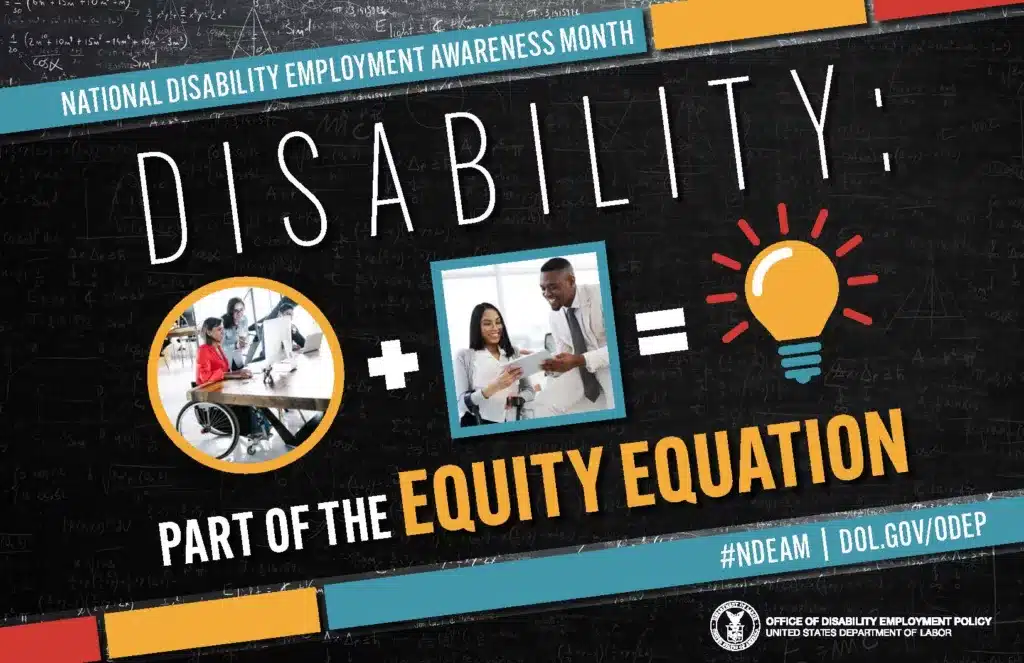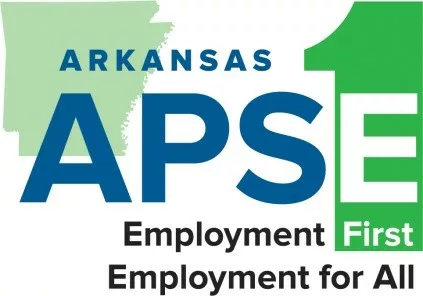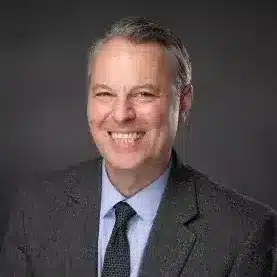Disability Employment – An Unbalanced Equation
by Jon Taylor
National Disability Employment Awareness Month (NDEAM) is celebrated annually in October. This year’s NDEAM theme is “Disability: Part of the Equity Equation”.

“A strong workforce is the sum of many parts, and disability has always been a key part of the equation,” said Assistant Secretary for Disability Employment Policy Taryn M. Williams. “People with disabilities make up a wonderfully multifaceted group. By recognizing the full complexion of our community, we can ensure our efforts to achieve disability inclusion are, in fact, truly inclusive.”
In Arkansas, the “full complexion” of people with disabilities represents a significant portion of our population. According to the Disability Statistics Compendium, our state has second highest percentage of people with disabilities in the nation: 19.2%. That’s nearly one out of five Arkansans – roughly 579,000 people.
Within that population of Arkansans with disabilities are people with cognitive disabilities. Cognitive disabilities include a host of conditions, like intellectual disabilities, autism spectrum disorder, severe and persistent mental illness, brain injuries, strokes, and Alzheimer’s disease. 235,288 Arkansans have a cognitive disability. That’s 7.8% of the state. Number one in the nation.
When it comes to employment, you might think that since we have such high percentages of people with disabilities, the state’s workforce would as well. It doesn’t. Arkansas has the second lowest percentage of people with disabilities of working age (18-64) in the workforce: 30.5% versus the national average of 37%. That comes out to around 91,000 Arkansans with disabilities who are in the workforce in some capacity. And when we look at Arkansans with cognitive disabilities, who are of working age, there are 130,000 people. And only 26,000 are employed. That’s 19.9%. The lowest in the United States.
If a strong workforce is a diverse one, and disability is a key part of that diversity, based on our numbers, Arkansas’ workforce equation is an unbalanced one. So how do we fix it? We can start with Employment First.
The Association of People Supporting Employment First defines Employment First as “employment in the general workforce should be the first and preferred option for individuals with disabilities receiving assistance from publicly funded systems. Simply put, Employment First means real jobs, real wages.”
Employment First, or just E1st for short, is a movement that has different forms in different states. E1st can be formal legislation, policy directives, or Executive Orders. In Arkansas, E1st began with Executive Order in 2010. That order, 10-17, directed state agencies to coordinate efforts to increase employment of Arkansans with disabilities.

In 2016 Governor Hutchinson issued the following statement in support of Employment First: “I am pleased to take on this vital initiative to help support our Arkansans with disabilities by allowing them increased opportunities to attain and maintain employment. Although legislative strides have been made to support individuals with disabilities seeking employment without losing vital healthcare benefits, there is still more to be done. Individuals with disabilities are underutilized in our workforce and I am calling on our state’s agencies to lead this important effort by example.” That statement was accompanied by a memorandum calling for state agencies to continue to coordinate efforts to increase employment of Arkansans with disabilities. An Employment First Leadership Mentoring Program was established to assist state agencies in that effort.
By 2018, that program recommended an Agreement of Understanding between Department of Developmental Disabilities Services (DDS), Arkansas Rehabilitation Services (ARS) to establish the Department of Human Services as a model for people employing with disabilities. By 2020 the program would have been rolled out to other state agencies, opening more opportunities for Arkansans with disabilities to join the workforce. And then COVID hit.
Now that the pandemic is past, its time to continue the movement towards E1st in Arkansas. We can take all that we have learned since 2010 and begin the process of legislating Employment First. When people with disabilities receive publicly funded assistance, one of the first questions we should ask them is “What kind of work would you like do?”, and not “Do you want to work?”.
Our first assumption must be the competence of people with disabilities. We must recognize that people with disabilities can and want to work. Because until we do, the equation of disability inclusion in the Arkansas workforce will continue to be imbalanced.




